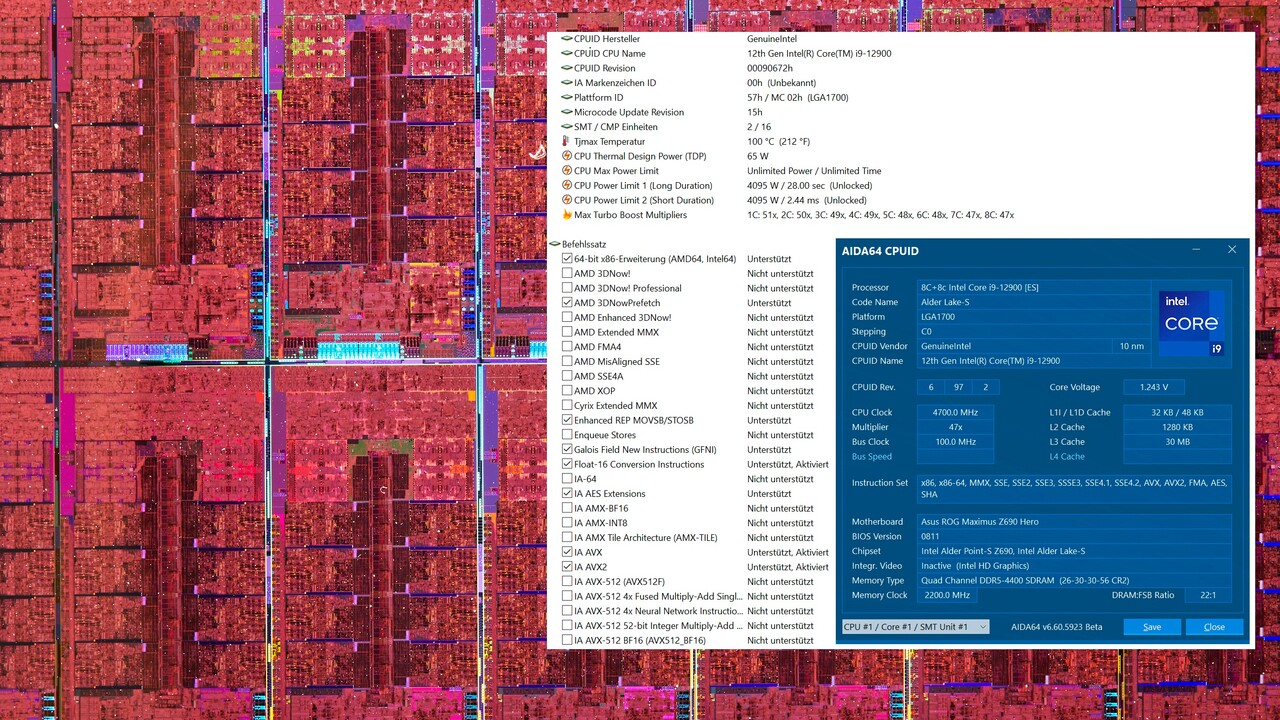Intel's new Non-K 13th-Gen Raptor Lake processors aren't overclockable like their predecessors.
RIP, Overclockable Non-K Intel Chips, We Hardly Knew Ye : Read more
RIP, Overclockable Non-K Intel Chips, We Hardly Knew Ye : Read more
Overclocking makes the most sense for lower end SKUs; remember OC'ing was born out of a want/need to squeeze more performance out of cheaper parts to compete with higher SKUs. It's always been a high risk & high gain endeavor for people looking to do it. Having OC exclusively for higher end parts is stupid and has always been, but Intel has been doing it for years now, so people got used to it and forgot why "OC" came to be in the first place.Well, who cares. Overclocking gets you nothing nowadays, a 0.1% boost in performance while tacking extra cost onto your electric bill.
Both Intel and AMD state that overclocking their CPUs will void the warranty.The argument of "OC could damage your chip". Well, yeah, no kidding. So Intel allows OC on K SKUs because they're danger free, but still void your warranty if you do OC? LOL
Why can't they just be honest and just say "we love segmenting the market artificially to squeeze every single penny out of you all". And hey, just to drive the dagger deeper, AMD allows OC in most, if not all, SKUs and in both their top and middle range motherboards. Still segmented, but less aggressively. It bears mentioning, every single time, to just make people aware.
Overclocking AMD processors, including without limitation, altering clock frequencies / multipliers or memory timing / voltage, to operate beyond their stock specifications will void any applicable AMD product warranty, even when such overclocking is enabled via AMD hardware and/or software. This may also void warranties offered by the system manufacturer or retailer. Users assume all risks and liabilities that may arise out of overclocking AMD processors, including, without limitation, failure of or damage to hardware, reduced system performance and/or data loss, corruption or vulnerability. GD-106
Ever since intel came up with that 'unlimited power' gimmick overclocking has become pretty much useless for the normal person looking to improve their budget system.The argument of "OC could damage your chip". Well, yeah, no kidding. So Intel allows OC on K SKUs because they're danger free, but still void your warranty if you do OC? LOL
Why can't they just be honest and just say "we love segmenting the market artificially to squeeze every single penny out of you all". And hey, just to drive the dagger deeper, AMD allows OC in most, if not all, SKUs and in both their top and middle range motherboards. Still segmented, but less aggressively. It bears mentioning, every single time, to just make people aware.
I wonder how the Intel apologists will defend this one now xD
EDIT: Typos.
Regards.


It really doesn't because they're still clock limited which is why the 12400/12500 on that graph are almost identical in performance. Higher end parts always have, and likely always will, benefit the least from overclocking. The 12100/12400 utilizing BCLK OC can get 15-25% more performance than using any default boosting method depending on workload.Ever since intel came up with that 'unlimited power' gimmick overclocking has become pretty much useless for the normal person looking to improve their budget system.
A locked CPU with unlimited power reaches the same level of performance as the unlocked part.
The only thing you lose with the locked parts is going for insane clocks using exotic cooling.
The locked 12900 gets a 33% boost in performance, show me one RYZEN CPU that gets anywhere close to that kind of an boost with overclocking.

Intel Core i9-12900 im Test: Benchmarks in Anwendungen und Spielen
Intel Core i9-12900 im Test: Benchmarks in Anwendungen und Spielen / In Single-Core-Anwendungen extrem starkwww.computerbase.de

But the difference in price of a simple mobo and one that has bclk enabled ( plus possibly the more expensive cooling) can also get you a CPU that has 15-25% more cores/performance.The 12100/12400 utilizing BCLK OC can get 15-25% more performance than using any default boosting method depending on workload.
That's not a particularly accurate statement either as there's a $20 price difference between the MSI Mortar and Mortar MAX (both DDR4 B660 boards with the latter supporting BCLK). I believe there's also a fairly inexpensive DDR4 Asrock Z690 board as well.But the difference in price of a simple mobo and one that has bclk enabled ( plus possibly the more expensive cooling) can also get you a CPU that has 15-25% more cores/performance.
This doesn't help you if you need the high clocks, but most people don't.
And there is a $100 difference between a cheap board and the MSI mortar non-max.That's not a particularly accurate statement either as there's a $20 price difference between the MSI Mortar and Mortar MAX (both DDR4 B660 boards with the latter supporting BCLK). I believe there's also a fairly inexpensive DDR4 Asrock Z690 board as well.
Where are you finding new $80 B660 boards let alone anything sub $100 even worth considering? VRM/BIOS are the most common things compromised on dirt cheap boards and is definitely a bad tradeoff which shouldn't be made.And there is a $100 difference between a cheap board and the MSI mortar non-max.
And a $100 better CPU on the cheapest board will still be faster than a $100 lower CPU on a $100 better board.
You could go from the 12400 to the 12600k with $100.


